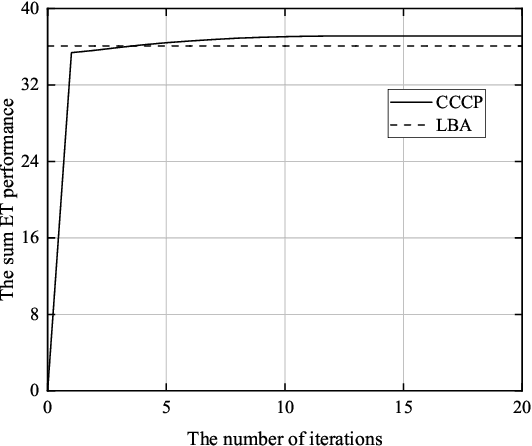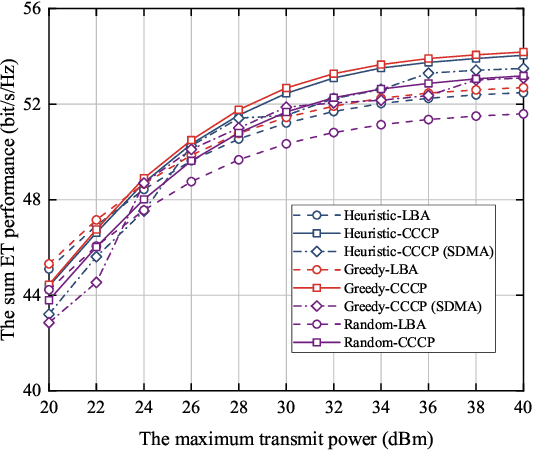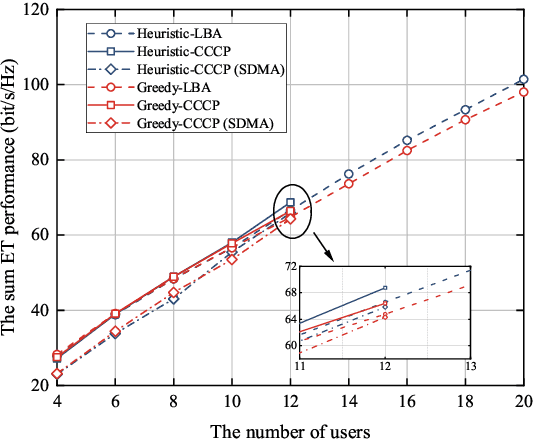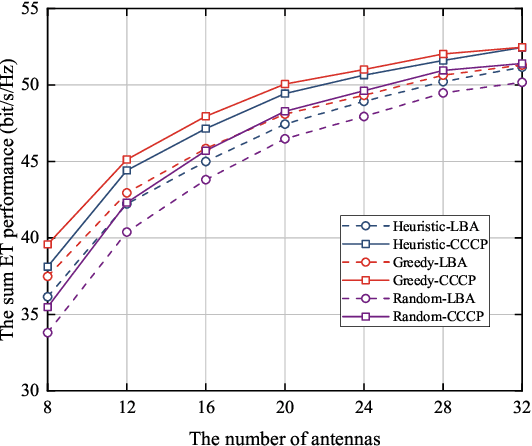Low-Complexity Resource Management for MC-RSMA in URLLC With Imperfect CSIT
Paper and Code
Dec 29, 2023



This paper investigates low-complexity resource management design in multi-carrier rate-splitting multiple access (MC-RSMA) systems with imperfect channel state information (CSI) for ultra-reliable and low-latency communications (URLLC) applications. To explore the trade-off between the decoding error probability and achievable rate, effective throughput (ET) is adopted as the utility function in this study. Then, a mixed-integer non-convex problem is formulated, where power allocation, rate adaption, and user grouping are jointly taken into consideration. To solve this problem, we first prove that ET is a monotone increasing function of rate under the strict reliability constraint of URLLC. Based on this proposition, an iteration-based concave-convex programming (CCCP) method and an iteration-free lower-bound approximation (LBA) method are developed to optimize power allocation within a single subcarrier. Next, a dynamic programming (DP)-based method is proposed to determine near-optimal user grouping schemes. Besides, a CSI-based method is further proposed to reduce the complexity and obtain important insights into user grouping for MC-RSMA systems. The simulation results verify the effectiveness of the CCCP and LBA methods in power allocation and the DP-based and CSI-based methods in user grouping. Besides, the superiority of RSMA for URLLC services is demonstrated when compared to spatial division multiple access.
 Add to Chrome
Add to Chrome Add to Firefox
Add to Firefox Add to Edge
Add to Edge